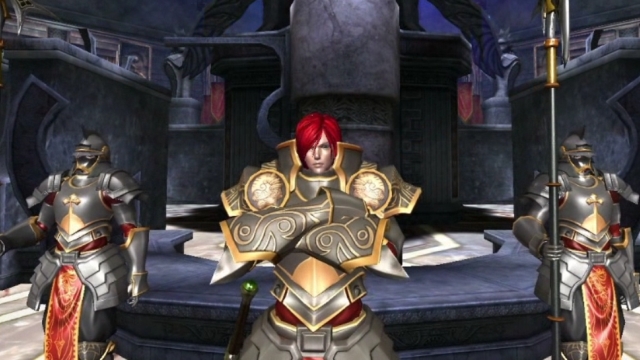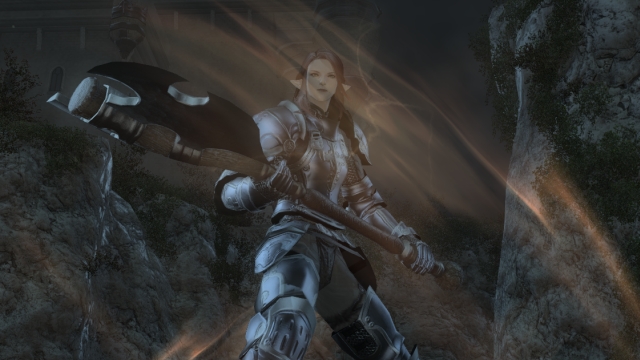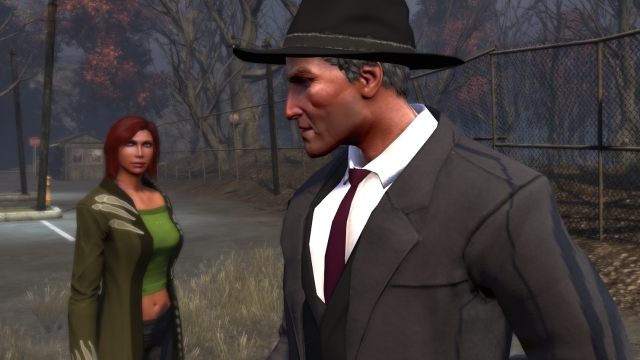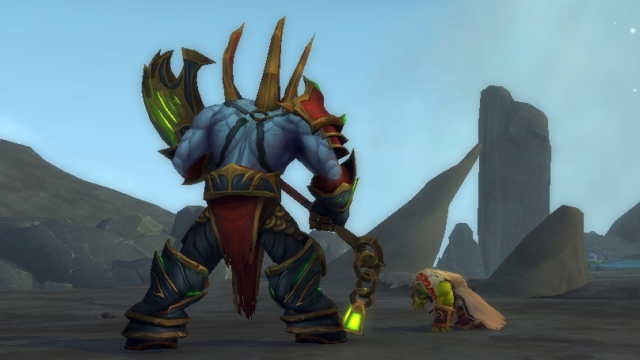No game is ever going to be equally fun at all times forever, no matter what. That’s the simple reality. If you spend four months playing World of Warcraft, you’re going to get a little tired of it. If you spend a year consistently playing it, you’re going to watch certain moments of wonder fade away into bland familiarity. And if you keep that up for even more time…
There’s nothing wrong or even unusual about taking a break, but it can be tricky to manage. The fastest way to turn a temporary break into a permanent departure is to insist that a break isn’t all right, but at the same time, an officer taking a break can turn into a cascading set of responsibilities for everyone else in the guild. So let’s talk about taking breaks and how to manage when people need them.

When a member needs a break
If Simon says he needs a break, let Simon know that he’s in a break. Have the officers put a note by his name that he’s taking a break, and encourage Simon to keep up with the guild on the website. He almost certainly will not do so, but that’s fine. The point is, Simon is just hitting pause for a bit, and there’s the tacit acceptance that this is normal and perhaps even a good idea outright.
Generally speaking, if someone’s on break for four months or more, it’s graduated to a full-on hiatus and may never involve them coming back. But if a member just needs to get out for a bit, it can be handled with a minimum of fuss. If the member taking a break has a big presence in the community, you might want to make a larger announcement; otherwise, just let Simon take his break and move on with the usual business of running the guild.
What you do want to look out for here is a cascading break effect; sometimes one person taking a break means four or five other people taking a break, which can ultimately mean a complete nosedive of membership. Obviously, you don’t want to crack down on the people who need a break, but you should be aware and consider that one person taking a break might lead to another scenario further on. We’ll talk about that a bit more later on; just know that if one person breaks and then five more do, you’ll need to respond differently.

When an officer needs a break
Ah, here’s where things get a bit more tricky. Members are important to a guild, obviously, but any given member is probably less important to the guild’s continued operation than any one officer. (If that’s not the case, you’re doing a terrible job with officers.) An officer has specific duties that they’re performing, and having an officer leave means someone else needs to take over those duties, possibly to the long-term detriment of the guild as a whole.
However, this cannot mean that an officer can’t take a break; as noted above, there’s no faster way to turn “I need a break” into “I’m leaving” than not being able to take one. But you are going to have to do a bit more work to make up the difference.
First and foremost, talk with the officer who needs a break ahead of time and get a clear picture of what that officer has been doing on a regular basis. Find out if they need a break from the game entirely or from being an officer specifically. Sometimes, handing off responsibilities for a while is all someone needs; often, more drastic measures are necessary, but it doesn’t hurt to double-check ahead of time.
From there, it’s important to have a meeting with the officers to see who can take over the existing responsibilities, if anyone. If no one is able to do so, you may want to promote someone into a temporary officer position or consider scaling back slightly; this is especially relevant if you’re in a real lull in updates for the game or there’s something going on that’s pulling people away on a regular basis.
The danger in scaling back, of course, is that it can inspire more people to take breaks and ultimately gut the guild. Thus, before deciding on anything in its entirety, meet with the rest of your guild and see what gets them logging on regularly. If it’s something to the effect of “guild responsibilities,” then scaling back isn’t an option; if it’s a matter of logging on for various things, you may be able to get away with doing slightly less for a while.
Just like members, a four-month break or longer probably means that the person in question isn’t coming back; however, an officer has likely shown a fair bit of loyalty. While I’d recommend quietly removing members who have been gone for four months with no further word, officers who have been gone for four months probably need a demotion; half a year without any word or talk about what happens next is grounds to kick someone. Use your best judgement, but I wouldn’t think someone gone for six months is eager to get back to guild management.

Mass breaks
When one person needs a break, one person needs a break. When a bunch of people all need a break at the same time, though, or several people start taking breaks in close succession, that’s a different matter.
First of all, ask yourself if this is a result of the guild or the game. In the game’s case, it happens; this is something I’ve discussed before, and you should take that as your guideline in this situation. But if it’s the guild itself, something appears to be causing a problem at the very core of your approach; either you’re asking more of players than they’re willing to give, or you’re generally not making the progress you want to be. Or the people you recruited are moving on from the game as they accomplish their long-term goals.
The temptation here is to ask members what they want, but I tend to encourage avoiding that approach. Why? Because it makes you look like you don’t actually know what you’re doing; you’re stumbling and hoping you can draw people back in as they reach their limits.
Instead, determine what your guild is doing well, and focus on that. If you’re a roleplaying guild that has always been known for doing well with roleplaying events, run more of those. If you’re aiming at progression but do better a tier or two below the most active content, focus on that for a bit. Double down on what makes the guild work best instead of things that might be leading to burnout, and cater to the people who aren’t taking breaks over the ones who are.
Obviously, breaks are normal, and often players will come back from breaks without any problems. They’re often very low-key things. But being conscious and careful of them is how you avoid turning a short-term drop into a long-term departure from the game, or at least your slice of it.







Published: Sep 20, 2016 08:54 am